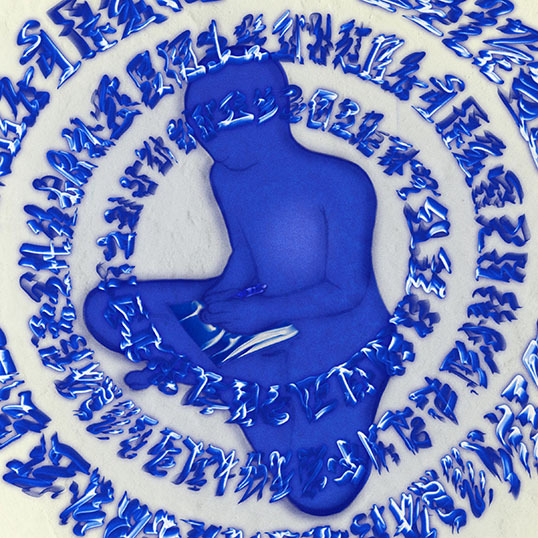It struck me when I was reading The Golden Ass by Apuleius that the French word for “ass” (âne) is derived from the Latin asinus. In Chleuh, a young donkey is called an asnous. Where’s the difference?
It’s important to think that the interpretation of languages, their peculiar nourishment of one another, is not only attributable to accidents of History; there is something in man akin to a phylogenetic curiosity which compels him, like an animal, to explore his memory, the behavior of others, with their disparate languages and divergent dialects, being just one of many rays of himself, a mirror held up to his slow, murky apprenticeship to life.
Writing in French or in Arabic, in the Maghreb, comes down to the extent to which these two languages are understood only by the exclusive, often antagonistic, elites. The spoken language of the Maghreb (and I don’t mean the rural one, I mean in urban contexts), is a dialect of Arabic which has nothing to do with literary Arabic. Such as it is, there is no truly popular literature in the Maghreb. This situation is intimately linked to the political circumstances, to the freedom or suppression of Maghrebi peoples.
For me, I see the French language as a tool for work and an instrument for personal enjoyment. When I write, I want to achieve perfection, and if what I produce doesn’t thrill me, I consider it beneath my eventual readers. I never write for this or that individual, nor for this or that political party, nor for this or that group of humans—I write for those who know how to read me, and who find a little of themselves in my work. First there is language, then there’s whatever one puts into it, then there’s the burst which captures you and which you can only capture if you’ve mastered some speech produced this way a long time ago. This is how it is for all languages and all writers. The attitude of certain Maghrebi authors toward the French language is an attitude of mutilated men. It’s a grave mistake, since a writer is outside language: he is only a manifestation of History. The true writer is always a stranger in the language he expresses himself in.
There will be fewer and fewer Maghrebi writers writing in French, considering the messy, intense Arabization that is popular right now in the Maghreb. Out of this pandemonium some minor poets will probably emerge, but no true creators. These will only be some exercises in style without amplitude, and that’s it! I’m not a pessimist, but the choice of language is an individual affair. One loves the words of this or that language or one doesn’t. It’s like food. And this is all taking place at the very moment we’re beginning to open up to the world—when we are still pure, I hear. I’ll go further and say that a writer does not possess a given language. It’s the language that possesses him. He is actually its slave. He must accept it completely, beyond nationalities, and consider himself a writer unattached.
For me, French culture is day-to-day French life; it’s the magnificence of the French language when one knows how to wield it; it’s the meeting of men and women and the sudden vision of sites that arise out of the randomness of wandering. Some French and foreign writers who have blown a fresh breath into this language at full boil. It’s in this setting that I fit, without a doubt. Why should I complain about this culture? Why reproach this language which kindly offers me its miscellaneous gaps or the detours of men who are supposed to give it a truly human inflection but who right now are only playing God?
French culture, like other cultures, follows the mortal line set for it by History. The men who produce it are enjoined to not dismiss external sources which, when incorporated and understood well, will enrich the culture of the entire world one of these days.

